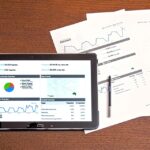Aviva (LSE: AV.) shares are a highly regarded funding in the meanwhile. On Hargreaves Lansdown’s platform, they have been among the many high 10 Shares and Shares ISA investments within the first 10 days of the 2024/2025 tax 12 months.
With their excessive dividend yield, I can see why traders are drawn to the shares. As a long-term investor on the lookout for excessive complete returns (capital positive factors plus dividends) might I do higher although? Let’s focus on.
Engaging, at first look
At first look, Aviva shares do have lots going for them. For a begin, they commerce at a considerable low cost to the market. At present, Aviva has a forward-looking price-to-earnings (P/E) ratio of simply 10.7 versus 13.8 for the FTSE 100. So they seem to supply worth.
Secondly, the corporate’s been performing properly not too long ago. Final 12 months, group working revenue was up a wholesome 9% 12 months on 12 months to £1,467m. “Our prospects have by no means been higher”, commented CEO Amanda Blanc within the firm’s full-year outcomes.
Third, there’s the large dividend, which I discussed earlier. For 2023, the group declared a complete payout of 33.4p per share, which interprets to a yield of about 7.1% right this moment.
An odd inventory
The factor is although, Aviva is a little bit of an odd inventory. Up to now, it’s usually seemed low cost. However this hasn’t actually translated into returns for traders. Consider it or not, during the last 10 years, its share worth has really gone backwards (by about 10%).
That’s disappointing, particularly when you think about that numerous UK shares have doubled or tripled in worth over that point interval.
Simply have a look at accounting software program firm Sage (which I personal shares in). Its share worth has gone from 400p to 1,165p in that point. And the corporate’s additionally paid good dividends.
After all, Aviva’s massive dividends have offset the shortage of share worth positive factors to a level. However these have been a little bit inconsistent.
I learnt this the onerous means as I owned the shares in 2020 when the corporate slashed its dividend payout. Not solely did I face much less dividend revenue on account of the minimize however I used to be additionally hit with nasty share worth losses.
On the time, I got here to the conclusion that one in every of Aviva’s issues was a scarcity of edge. It operates in a very aggressive business (that may be turbulent at occasions) and doesn’t actually have a real aggressive benefit or ‘financial moat’ as billionaire investor Warren Buffett likes to say.
That’s not very best from an funding perspective.
My view on Aviva
Now, I don’t need to sound too bearish on Aviva. It’s a strong firm that’s performing fairly properly in the meanwhile. And the dividend yield is at the moment enticing. So it might be a superb inventory for revenue seekers.
Nonetheless, personally, the shares don’t strike me as a ‘must-own’ funding. I feel there are different shares on the London Inventory Alternate which can be able to offering greater complete returns within the years forward.








![Just released: Share Advisor's latest lower-risk, higher-yield recommendation [PREMIUM PICKS]](https://getmoneyskills.net/wp-content/uploads/2024/04/Just-released-Share-Advisors-latest-lower-risk-higher-yield-recommendation-PREMIUM-PICKS-150x150.jpg)


